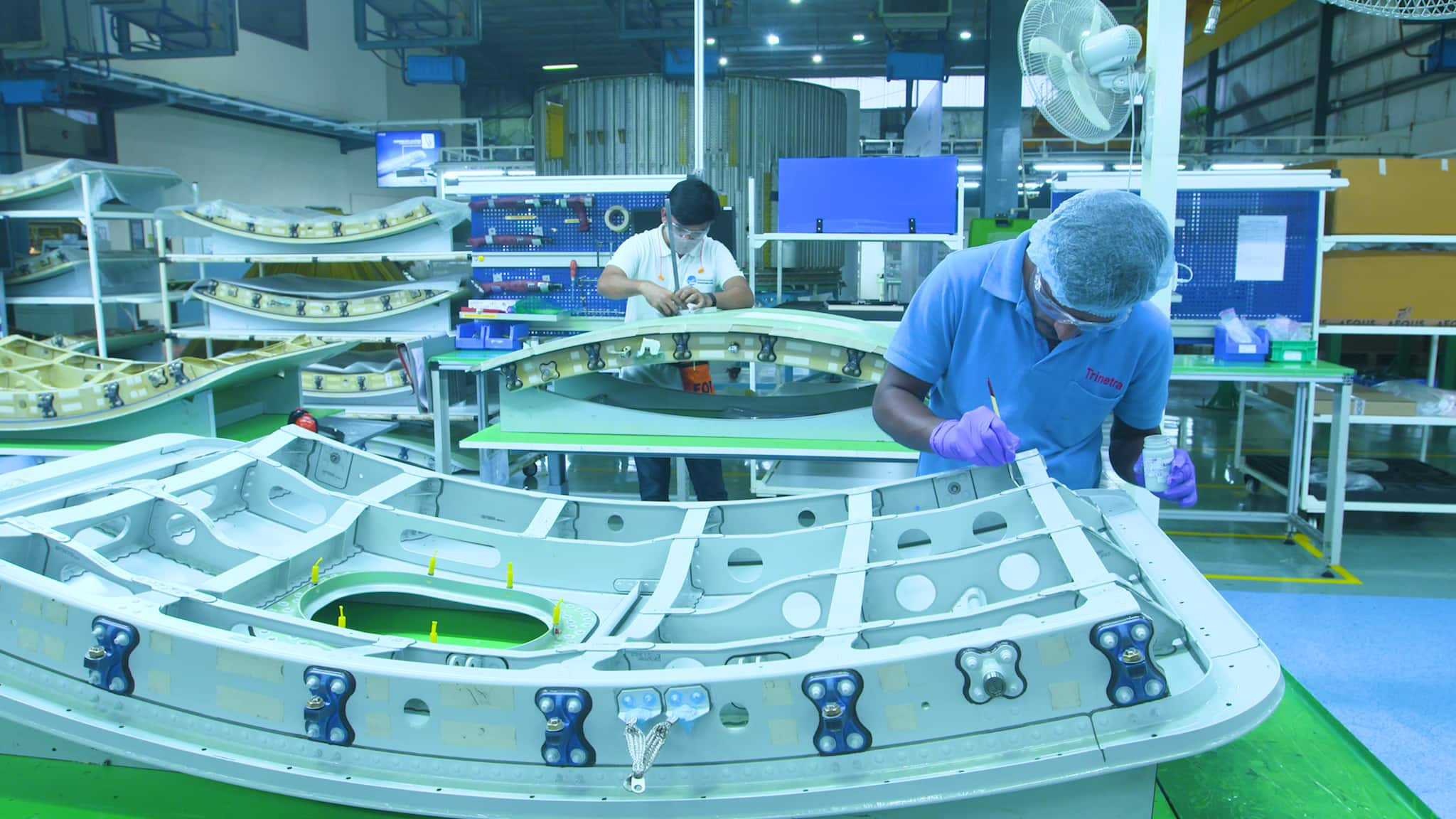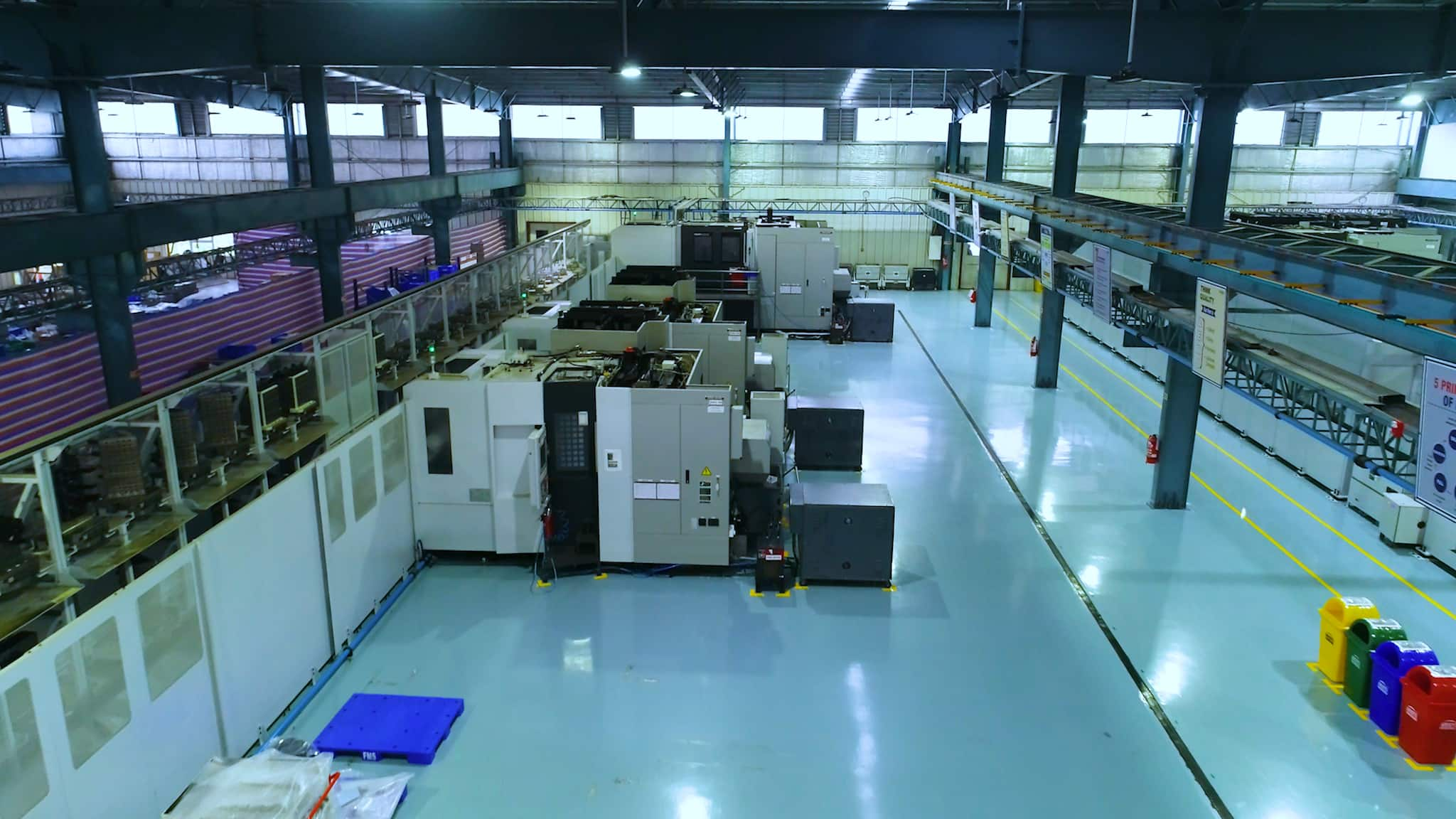



When Aequs Ltd—earlier QuEST Global Manufacturing—established its aerospace industrial park on 250 acres in North Karnataka in 2008, co-founder Aravind Melligeri faced a surprising challenge: convincing clients that Belgaum actually existed.
“Foreigners and customers often confused Belgaum with Belgium,” Melligeri recalled with a laugh. “We had to show them the map and point out exactly where Belagavi was. Then in 2014, when the city was renamed from Belgaum to Belagavi, I had to explain it all over again,” he said in an interview with Moneycontrol.
This confusion mirrored the scepticism Melligeri faced when he and his partners decided to build a world-class aerospace hub far from Karnataka’s capital, Bengaluru.
“I approached many aerospace leaders in Bengaluru and said, ‘Come, let’s set up here. This zone isn’t just for Aequs; it’s for everyone to leverage,’” he said. “But the common response was, ‘Who’s going to go to Belagavi? It will fail.’ Honestly, I couldn’t convince a single person from Bengaluru to move here.”
Made in Belagavi
Today, the Aequs Aerospace Park is a crucial part of global aircraft manufacturing. “Every aircraft delivered today has parts made in Belagavi,” Melligeri said.
“We produce 4,500 unique parts every month—both visible and hidden—found on almost every plane.”
Aequs counts Airbus, Boeing, Safran, Collins Aerospace, and several other global giants among its clients.
He added, “When you fly on an Airbus A320, for instance, and see the spinner—the rotating part on the engine—that’s made by Aequs. Or when you sit next to the overwing exit or emergency door, you’re touching parts from Belagavi. Every time a flight lands, the wheels likely came from here. Twenty years ago, no one would have imagined this.”
 Aerostructure assembly – plug doors
Aerostructure assembly – plug doors
Despite early doubts, Melligeri and his team believed scaling aerospace manufacturing in Bengaluru’s crowded ecosystem was impossible.
Bengaluru’s traffic snarls and talent wars underscored the need for an alternative. “The traffic in Bengaluru was manageable back then, but the real challenge was talent,” he explained. “Everyone competed for the same pool, constantly poaching. To build stable talent, you need a stable environment—and that meant tier-2 or tier-3 cities like Belagavi. Success here (Belagavi) would take five years to establish, but it’s sustainable.”
India’s aerospace manufacturing sector was fragmented, dominated by small units with minimal machinery. “We had to incentivise some employees to relocate temporarily while we developed local talent. But people settle where they are—they don’t move easily, even for higher pay. Today, employees in Belagavi earn as much as those in Bengaluru. It’s not about cost, it’s about personal stability.”

Vision for aerospace excellence
Melligeri views this as a 20-year journey with 15 years of steady execution, focused on long-term economic value. “To do this, you need seamless delivery despite infrastructure gaps, bureaucracy, import-export challenges, and talent shortages,” he said. “These problems don’t have quick fixes. You must tackle them together and be patient.”
Initially, customers demanded large-scale contracts worth $5–10 million with local-level quality and timeliness. “At first, only about 20 percent of value addition happened in India — most machines and materials were imported. We built everything from scratch, worked with approved suppliers, formed joint ventures, and scaled up. Today, we have around 100 percent in-country value addition in many parts.”
Melligeri’s approach was to solve problems at their root, not with patchwork fixes. “While the government took years to set up an SEZ in Bengaluru, we created ours first in Belagavi. We even brought expats to live here to ensure quality and knowledge transfer.”
Overcoming infrastructure and perception challenges
Back then, Belagavi had no three-star hotels, poor road connectivity, and an airport with very few commercial flights. “We used to drive 10–12 hours from Bengaluru. For a multinational leader, Belagavi wasn’t an obvious choice. Comfort and visibility drew companies to Bengaluru,” Melligeri said. “But for us, it was about building a foundation, not chasing short-term wins.”
While the government focuses on attracting multinationals to big cities, Melligeri believes industrialists must embrace tier-2 cities. “If I want 5,000 people, I can hire 5,000 people here now. The talent is ready; it just needs an opportunity.”
A resilient manufacturing ecosystem
Aequs operates 24x7 except on government holidays, without disruption from any strikes. Quality and timeliness are non-negotiable. “We deliver 100 percent on time, zero defects. Parts reach final assembly within 24 to 48 hours of production.”
Transparency is central to their culture. “We don’t hide problems. If there’s a delay or quality issue, we communicate openly and act quickly. We encourage reporting issues without punishment. Our strength lies in a culture of trust and openness.”
Expanding verticals and strategic partnerships
Aequs has diversified from aerospace manufacturing in Belagavi to include a consumer durables cluster in Hubballi and a toy manufacturing cluster in Koppal, employing over 4,000 people across its operations.
 Automated flexible manufacturing system
Automated flexible manufacturing system
"Aerospace makes up around 80 percent of the business, while the remaining consists of consumables including toys, cookware, and electronic components."
The “China Plus One” strategy and US tariff benefits help its toy business, as customers seek long-term economic value and diversification. “We evaluate every vertical on labour content, local materials, export potential, and import substitution. We invest only where sustainable value is clear.”
Strategic partnerships are vital. Since 2011 Aequs has partnered with Aubert & Duval, Europe’s leading forging manufacturer, and Magellan Aerospace for surface treatment and MRO facilities.
“A groundbreaking ceremony for a new MRO facility in partnership with Magellan in Belagavi is expected later this year,” he said.
“We work only with the top 4–5 players in each vertical who control 80 percent of the market,” Melligeri said. “They demand scale, stability, and commitment. We aim to be best in class.”
Growth, IPO, and the future
Aequs earns Rs 1,000 crore in annual revenue and targets 20 percent annual growth. Melligeri says growth is the only option—standing still is not.
“An IPO is part of our journey. It’s not a start or an end but a step toward maturity and scaling. We’ve brought in investors and are on track for an IPO.”
 Moulding machines
Moulding machines
While Aequs does some defence manufacturing, SEZ rules restrict the processing of government materials. Melligeri hopes for regulatory changes to leverage their unique capabilities, including a 10,000-tonne forging press.
For Melligeri, clarity and focus are critical. “Be clear about your goals with a practical five-year plan — not a bucket list. Always have a Plan B. Stay humble and hungry. You are your own biggest limitation.”
Aequs’s aerospace park, located at Hattargi village in Hukeri taluk, around 40 km from Belagavi city and about an hour from the airport, has transformed barren land into a thriving industrial hub. While the Pune–Bengaluru highway is being six-laned to cut travel time, Aequs’s journey had already taken flight long before.
(This correspondent visited the aerospace manufacturing cluster in Belagavi at the invitation of Aequs Ltd)
Discover the latest Business News, Sensex, and Nifty updates. Obtain Personal Finance insights, tax queries, and expert opinions on Moneycontrol or download the Moneycontrol App to stay updated!
Find the best of Al News in one place, specially curated for you every weekend.
Stay on top of the latest tech trends and biggest startup news.